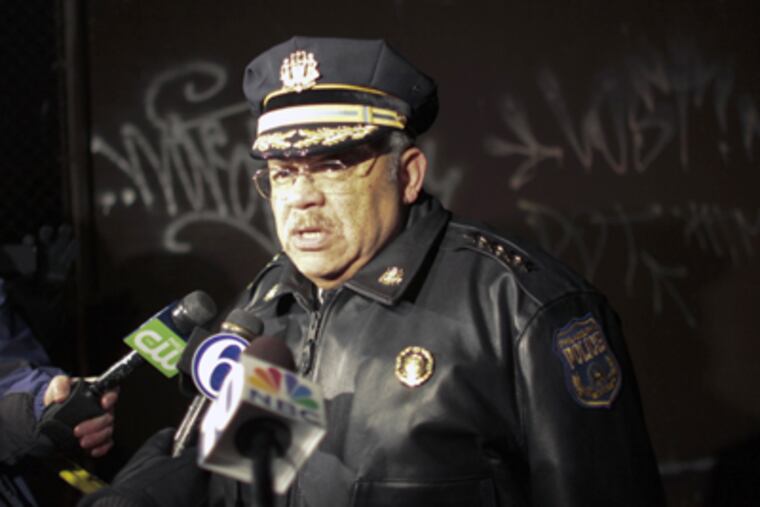Inquirer Editorial: Rogue cops under wraps
A newly released report detailing city police arbitration cases sheds new light on an old problem: getting rid of the bad apples on the force.

A newly released report detailing city police arbitration cases sheds new light on an old problem: getting rid of the bad apples on the force.
A review of 46 cases over the last decade reveals an ineffective disciplinary system that seems to favor bad conduct. Officers dismissed for serious violations often get reinstated by arbitrators with back pay.
The decisions were made outside of public scrutiny, and the outcomes probably would have remained secret. But a Common Pleas Court judge rightfully ruled in favor of the Daily News, which waged an 18-month legal battle to obtain police grievance arbitration decisions.
The 24-page report was issued in 2006, but only now made public. No surprise, Lodge 5 of the Fraternal Order of Police, the city police union, opposed the release.
The cases involved officers charged with breaking the laws they were sworn to uphold, as well as departmental infractions. They include assault, drunken driving, and insubordination.
Of the 47 arbitration decisions made public, the officers won 26, the city won 11, and the arbitrator made a split decision in 10.
They underscore the need for Commissioner Charles H. Ramsey to continue his efforts to weed out rogue cops and push for higher ethical standards among police.
He plans to raise the hiring age from 19 to 21, and to require that recruits have two years of college. That should help produce better quality recruits who can follow the law.
Since early 2009, a number of cops have been arrested on charges including murder, rape, and drug dealing.
The alarming increase in such serious incidents undermines the credibility of the entire force, and calls for tougher enforcement.
The arbitration list also revealed another closely guarded secret: former District Attorney Lynne M. Abraham's office kept a list of officers deemed too untrustworthy to testify.
Barring them from court created a "catch-22" for police and prosecutors. It makes no sense to have tainted officers making arrests when they can't testify about the incident. As such, some cases get weakened.
Seth Williams, who replaced Abraham in January, hasn't said if he maintains a similar list. The public should know that, and the arbitration system needs fixing.